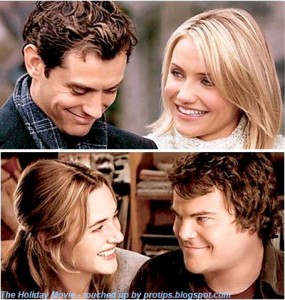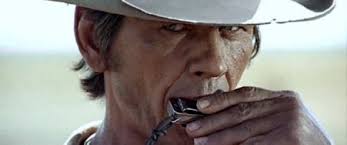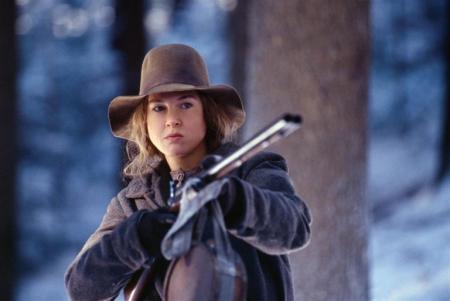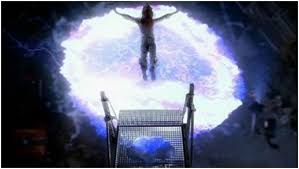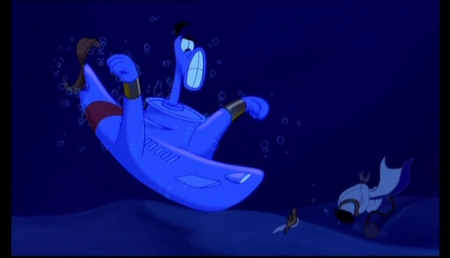I nearly had a heart attack after opening my blog this morning and thinking I hadn't written about violence for like a whole post (but of course I had: the picture of Renee Zellweger holding a gun alerted me to this.) I think it was that I hadn't written about actual full-on crime violence, cowboys or Buffy for like a whole post.
BUT thankfully over the weekend I watched
Once Upon A Time in the West, a 1968 film directed by the king of spaghetti westerns, Sergio Leone. Like most of his films, I spent the first hour trying to work out which cowboy was which (there were three main ones, each with their lackeys, and they all look kind of the same and sound the same and shoot people, and some of them were pretending to be other ones. So it's this whole confusing thing).
But it was such a joy to watch, for three main reasons:
1. The cinematography. waahhh there just aren't words. It was beautiful: not just because of the amazing desert landscape, but also the facial-close ups (kind of making the face a landscape to written onto as well). For example:
The cowboys always fill the screen, even if, like the second screenshot above, the desert actually takes up more space. Sergio Leone is known as one of the first directors to make 'films-about-films' and
Once Upon a Time in the West is a type of meta-western, simultaneously an homage to, and reworking of, the American western TV shows that were very popular in the early 60s. That every shot seems overwhelmed by men - and men who almost all die - perhaps signifies the impossibility of American TV cowboy ideology (the glorification of the frontier, expansion, violence, etc) actually surviving (or perhaps that Leone thought it should be 'killed off').
2. The story line. SO COMPLEX! I mean seriously, it was almost unnecessarily full of red herrings. But this was the great thing about it - it was not predictable at all and defied the Western fomulae that had, till this point, been assumed. For example, the three cowboys in the opening scene (shown in the bottom right screenshot above) are actually actors that have previously been cast as successfully violent cowboys in early American Westerns. They all get shot within the first five minutes and you realise: this film is about breaking down the stereotype. These men that who have committed violence in the name of America will be brought down. Ironically, it is
another lone, American cowboy who shoots them. Here we see the cowboy at once vilified and exonerated (but I haven't thought about this enough to provide an interpretation yet).
Leone provides a plethora of characters (the three cowboys - Harmonica, Frank and Cheyenne, a robber-baron, a young beautiful widow, and some other side characters) to mix and intermingle so many typical western storylines that it's hard to know what the film was actually
about, or to articulate its plot. But I think this was intentional. Leone seems to have brought all these familiar storylines together in a way that is quite difficult to interpret, so that any reigning, America-focused narrative becomes not only impossible to read, but in fact absent.
 |
| Cardinale as Jill McBain |
|
3. Claudia Cardinale (the actress who played the young gorgeous widow, Jill McBain). What a ROBOBABE! She is considered the first so-called "complex" female character in a Western: she arrives in town, a young wife, to find her husband and his children shot by Frank, who wants the McBain land. All three cowboys visit her a various times to try and find what was so valuable about the property (which, as it turns out, was the fact it had water on it and was right by the railway). She relates to these cowboys without fear, claiming to not even fear rape, because even if all the men had their way with her, she wouldn't be dead. Later, when Frank does try to rape her, she sleeps with him willingly so as not to be killed. She is then revealed to be a prostitute from New Orleans who fell in love with the land-owner McBain and decided to move to his ranch. The fact she is a prostitute explains her lack of fear about putting forth her body in order to survive, but complicates her role as lady-of-the-house. She is a whore who is respected by the cowboys simply because she is beautiful, and sexually beautiful. The fact she is prostitute means she is not the type of untouchable, Southern Belle that Nicole Kidman was in
Cold Mountain, but an accessible woman whose beauty and body is available to men.
Cheyenne, at the end of the film, says to her: "You know what? If I was you, I'd go down there and give those boys a drink. Can't imagine how happy it makes a man to see a woman like you. Just to look at her. And if one of them should pat your behind, just make believe it's nothing. They earned it." I mean,
excuse me? I know, I know, it was '68 and '70 feminism hadn't quite made headways but STILL! "They earned it?" Who writes that? And the thing is, Jill does walk contentedly out into the midst of the workmen, bringing them water, like some sort of eternal female figure, a whore providing life-giving nourishment. Jill's character may have been complex but her objectification is portrayed as natural, and in fact, somehow
good and
life-giving. Gross. But, I guess women in Westerns had to start somewhere, right?
There are so many other great things about the film - the soundtrack, for one. Also it's clear Tarantino has watched this film about a gazillion times, the music, the cowboys, the stand-offs, the deliberate dialogue have pretty much just been inserted into the
Kill Bills. But everyone should watch
Once Upon a Time in the West. It will make everyone want to move to California and everyone want to marry a cowboy (even if you're a man. Trust me they're amazing).



